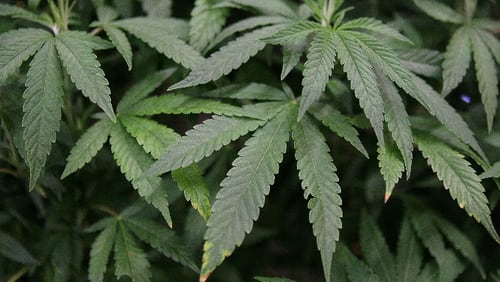A dose of cannabis per day could give an aging brain a restorative boost.
» RELATED: Georgia medical marijuana expansion bill signed into law
That's according to new research published this week in the scientific journal "Nature Medicine."
The team of researchers carried out three experiments, testing low doses of THC (the chemical in cannabis that produces the “high”) on mice at three different life stages: two months, 12 months (mature) and 18 months (old age).
In the first experiment, mice had to navigate their way around a water maze. Both the mature and old age groups performed worse than the younger mice, but when treated with THC, the older groups improved and the young group got worse.
Next, the mice had to locate a specific object. When the older mice were treated with THC, they performed as well as young mice without the drug.
» RELATED: Plan to grow, sell medical marijuana filed in the Georgia Legislature
And in the final experiment testing partner recognition, a dose of THC improved memory in the older mice.
After testing the effects of the psychoactive ingredient, they noticed the chemical impaired memory and learning in the younger creatures, but boosted the cognitive performance of older ones.
The scientists believe the THC stimulates the endocannabinoid system, a biochemical pathway throughout the central and peripheral nervous system that becomes less active as mice (and other animals, including humans) get older.
“These results reveal a profound, long-lasting improvement of cognitive performance resulting from a low dose of THC treatment in mature and old animals,” the scientists wrote.
» RELATED: Georgia getting $11.7 million in grants to fight painkiller overdose epidemic
The findings raise hope for potentially benefiting the treatment of memory problems, dementia and other health issues common in the aged population.
“If we can rejuvenate the brain so that everybody gets five to 10 more years without needing extra care then that is more than we could have imagined,” lead author Andras Bilkei-Gorzo at Germany’s University of Bonn said.
The team will be launching a small-scale clinical trial on participants aged 60 to 70 later this year.
About the Author







